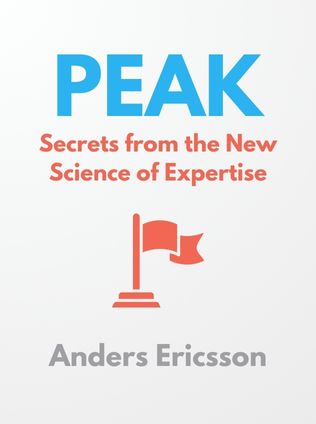
Peak
Secrets from the New Science of Expertise
By Anders Ericsson
Published 04/2016
About the Author
Anders Ericsson, a distinguished psychologist, is recognized worldwide for his groundbreaking research on the science of expertise. Born in Sweden and later becoming a professor at Florida State University, Ericsson spent decades exploring what separates the world's top performers from everyone else. His work is most renowned for introducing the concept of "deliberate practice," which has since become a cornerstone in understanding how experts develop their extraordinary skills. Co-authored with Robert Pool, "Peak: Secrets from the New Science of Expertise" distills Ericsson’s extensive research into a guide for anyone looking to maximize their potential. Through his book, Ericsson challenges the conventional wisdom of innate talent, offering a more optimistic view that greatness can be achieved through methodical and sustained effort.
Ericsson’s research has had a profound impact on fields as diverse as music, sports, education, and business. His insights into how experts in various domains—from concert pianists to chess grandmasters—achieve their remarkable abilities have redefined how we think about learning and performance. He debunked the myth that talent is the primary driver of success, instead arguing that purposeful and deliberate practice plays a far more significant role. This paradigm shift has empowered countless individuals to pursue excellence with the belief that with the right approach, they too can achieve mastery.
Main Idea
"Peak: Secrets from the New Science of Expertise" argues that exceptional performance is not a product of innate talent but rather the result of deliberate and purposeful practice. Ericsson contends that by systematically pushing beyond one’s comfort zone, setting specific goals, and receiving consistent feedback, anyone can develop expertise in any field. The book emphasizes that the key to success lies in the quality and structure of practice rather than inborn ability. Ericsson’s work dismantles the myth of the “natural genius” and replaces it with a more empowering narrative: that excellence is within reach for anyone willing to put in the work.
Table of Contents
- Introduction to the Science of Expertise
- Purposeful Practice
- Deliberate Practice
- Mental Representations
- Applying Deliberate Practice
- The Talent Myth
- Conclusion: Reaching Your Peak
Introduction to the Science of Expertise
In the opening chapters of "Peak," Ericsson sets the stage by challenging the widely held belief that exceptional performers are born with unique talents that naturally set them apart. He introduces the concept of deliberate practice as a counterpoint to this idea, proposing that what truly distinguishes experts from novices is not genetic predisposition but the type and quality of practice they engage in over time. Ericsson's introduction is both a critique of the traditional views on talent and a call to rethink how we approach learning and skill development.
Ericsson uses examples from various fields, such as music, athletics, and chess, to illustrate that extraordinary abilities are cultivated through years of dedicated and purposeful practice. He emphasizes that this type of practice is not about going through the motions or putting in mindless hours but rather about engaging in highly focused, structured activities designed to improve specific aspects of performance. This introduction is crucial as it lays the foundation for the rest of the book, setting the stage for a deep dive into the mechanics of expertise and how it can be systematically developed.
Purposeful Practice
Purposeful practice is a significant step beyond mere repetition. Ericsson describes it as a type of practice that is characterized by well-defined, specific goals and complete focus on the task at hand. Unlike regular practice, which often leads to a plateau, purposeful practice is designed to push the individual beyond their current capabilities, leading to continuous improvement. This concept is essential because it shifts the focus from the quantity of practice to the quality and intentionality of each practice session.
Ericsson provides several key characteristics of purposeful practice:
Sign up for FREE and get access to 1,400+ books summaries.
You May Also Like
The Subtle Art of Not Giving a F*ck
A Counterintuitive Approach to Living a Good Life
By Mark MansonRich Dad Poor Dad
What the Rich Teach Their Kids About Money - That the Poor and Middle Class Do Not!
By Robert T. KiyosakiHow To Win Friends and Influence People
The All-Time Classic Manual Of People Skills
By Dale CarnegieFreakonomics
A Rogue Economist Explores the Hidden Side of Everything
By Steven D. Levitt and Stephen J. Dubner



















